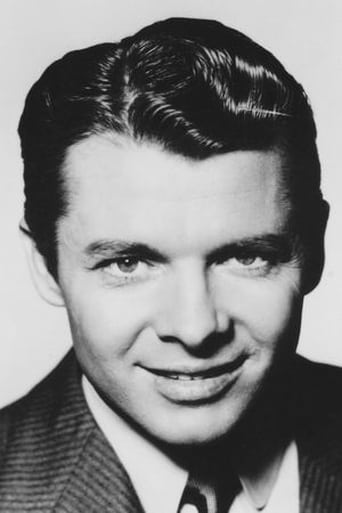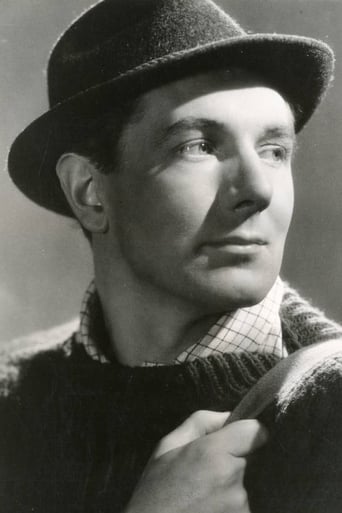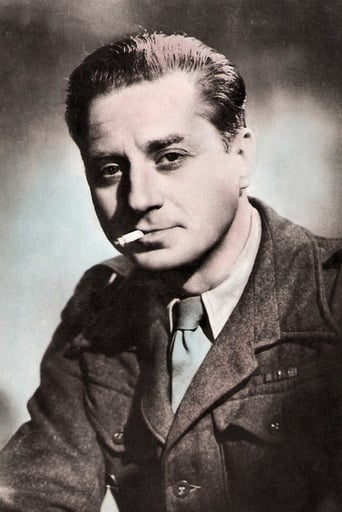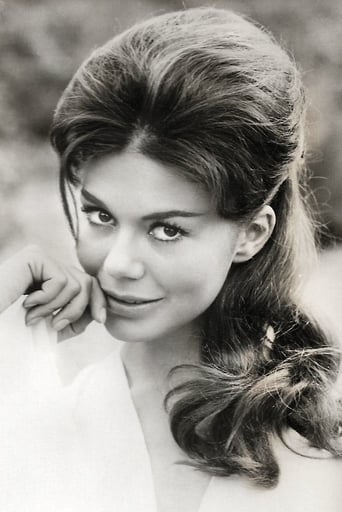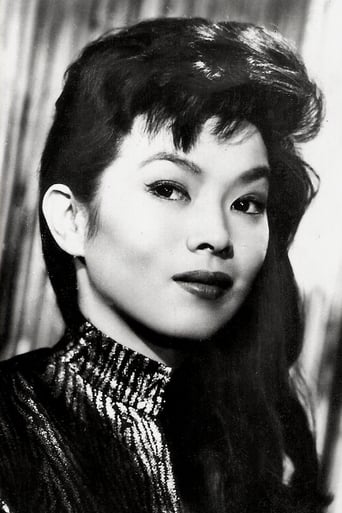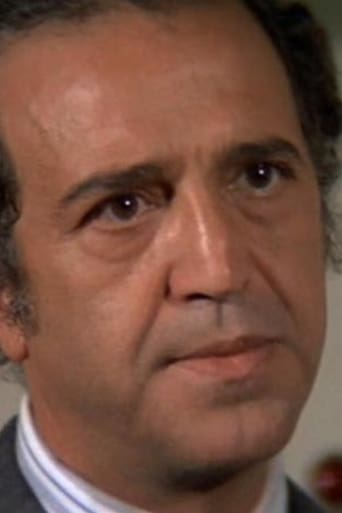Mark Turner
While I'm familiar with the name Graham Greene I've never read one of his books. Of his works the only one I've ever seen was THE THIRD MAN for which he wrote the screenplay based on his own novella. So when I took to watching this movie I was interested to see what I'd make of it.The story is more romance than spy story though it has elements of both. It takes place in the mid-fifties in Vietnam, a country poised on the brink of war and being tugged at both ends by different political factions. The tale is told through the eyes of British foreign correspondent Thomas Fowler (Michael Redgrave), a world weary reporter who's seen it all and has little hope for peaceful solutions.Fowler lives in an apartment with his companion Phuong (Giorgia Moll), a young Vietnamese girl who hopes to accompany him when he returns home. Fowler has told her that when he does so he will divorce his wife and the two of them will live together but the reality is that his wife, a devout Catholic, is unwilling to give him a divorce.Into their lives enters Alden Pyle (Audie Murphy). Pyle is unnamed in the movie but named in the book. Pyle supposedly works for an import/export business in town but in reality is an agent of the CIA. Dedicated to his job and believing that there is a solution to the problems in the country, he befriends first Fowler to learn more and then becomes enamored with Phuong. While Fowler has no real intention of taking Phuong with him, he finds himself insanely jealous of the attention Pyle shows her.Parts of this are interesting to watch as the two men discuss their intentions and Phuong not necessarily as a human being but as something they can barter over. Both have different beliefs about her, Fowler that she will just go along with the political climate offered here and Pyle that she can become an American with a sympathetic lifestyle. Her attitude towards it all is simple, she just wants to leave the country and go somewhere that has more opportunity. Eventually the romantic triangle must find a solution.Just how far Fowler is willing to go to put an end to his potential rival becomes a big part of the third act of the film. Midway through the pair find themselves stuck in a watchtower and have time to discuss their differing political views. Ever the cynic Fowler finds Pyle to be naïve rather than informed. None of it bodes well for Pyle.The film was supposed to be an anti-war piece but was twisted during production. Much of that revolved around the fact that this was during the blacklist period of Hollywood and the fear was it would be construed as a pro-Communist film. One thing it did so was predict the difficulties that would take place in Vietnam in years to follow. While a critical success it wasn't a huge hit at the box office.I think part of the reason for this was the structure of the film. It plays like a book and at times can be overly wordy. With little action to be found the movie crawls at a snail's pace while we wait to see what happens. Murphy was a star by this time, a decorated WWII hero who was known to play in westerns. This was a change of pace and it may have confused movie goers at the time. Still it makes for an interesting look at a topic rarely covered this way when it comes to Vietnam.Twilight Time provides the standard great looking picture with this release but few extras. All you will find here are an isolated music track with some effects and the theatrical trailer. But if interested make sure you pick one up before they're gone as the standard 3,000 copies have been made for release.
kijii
I've now seen the two versions of this movie, based on this Graham Greene's novel. Though the 2002 version with Michael Cain and Brendan Fraser is supposed to be more faithful to Green's novel, I much prefer the story that is presented in this 1958 version. On TCM, Ben Mankiewicz said that, for marketing reasons, the story in this version (directed by his uncle) had to be toned down to make it less anti-American than the novel. He also said that Audie Murphy was probably chosen for the title role because he was a well-known actor-war hero (a Congressional Metal of Honor winner who played himself in the autobiographical war movie, To Hell and Back.) Though this wide-screen, black-and-white movie about two men in far-off place, called Vietnam, then failed at the box office, the locale of its story would come back to haunt us for decades to come.Neither Audie Murphy nor Brendan Fraser stand out as actors that we tend to think of a 'top-notch.' But, ironically, the acting of the movie's title character doesn't need to be particularly great, just adequate. Both versions of this movie are more about THE MYSTERY of quiet American, Alden Pyle and what he is doing in Vietnam in 1952, than they are about the characters themselves. So, Audie Murphy (and Brendan Fraser in the 2002 version) only had to basically 'show up' in the movie to have the story work well. BUT FIRST, let's consider the plot of the 1958 movie, with cross-references to the actors that played the same characters in the boring 2002 version. As the movie opens, the people of Saigon are in the streets celebrating the Chinese New Year (Tet) with parades of noise makers, masks, and paper dragons. During the celebration, a Vietnamese man discovers the body of a white man, lying face down in the river. The body is that of Alden Pyle (Audie Murphy)(Brendan Fraser in 2002 version). Police Inspector Vigot (Claude Dauphin)(Rade Serbedzija in 2002 version) calls in a British journalist, Thomas Fowler (Michael Redgrave)(Micheal Caine in 2002 version), to identify the body. Fowler is also questioned about HIS whereabouts at the time of the suspected murder. At this point, there is a flashback that takes Fowler's recollections back to when and how he first met Pyle and what their relationship had been like during their acquaintance...Basically, they met since they were both white men working in an Asian country, and they tended to go to the same social clubs and restaurants to relax with other English-speaking people. When Pyle first meets Fowler, Fowler is accompanied by his live-in Vietnamese girlfriend, Phuong (Giorgia Moll—Do)(Thi Hai Yen in the 2002 version). While dancing with Phuong at one of the European clubs, Pyle is taken with her. When Pyle learns from Fowler that he is separated from his wife (who still lives in England and refuses to give him a divorce), he honorably tells Fowler that he wants to openly court Phuong. Fowler reluctantly offers to translate (English to French) Pyle's intentions to Phuong. Pyle tells Phunog that he loves her and wants to marry her and take her back to the US: he wants to offer her a future, away from Vietnam. This is something that Fowler—as a married man--can't do. But, Fowler deeply loves Phuong and wants to continue to life with her in Vietnam. The tension of the love triangle is heightened because Phunong's older sister is trying to look out for Phunong's future by hooking her up with the idealized 'rich American man from New York.' The fact that Pyle is neither rich nor from New York is only a minor problem for Phunong and her controlling sister. So, Phunong does leave Fowler for Pyle (respectfully living apart while courting).As a journalist looking for a story to keep his job in Vietnam, Fowler travels to Hanoi in the North. There, there is a Communist offensive against the French. When he arrives in the embattled North, he is surprised to find Pyle there too. But, why would Pyle there when his business is plastics? What do plastics have to do with an offensive in the North? Pyle tells Fowler that he just came up to see him and see the action for himself, but why? As the two return home in a jeep, they breakdown on the road and are attacked by Communist forces. Pyle then saves Fowler's life, and they return safely to Saigon. While Fowler is ready to believe the worst about Pyle's third force, a fellow British reporter puts him in contact with a Vietnamese friend. The friend leads him to think the worst about Pyle and his reason for being in Vietnam. (Plastics are used in toys but they are also use in explosives.) When circumstantial evidence confirms the Vietnamese contact's incriminating evidence against Pyle, Fowler's ideas only seem more solid. The final outcome of this movie reveals more about Fowler and Pyle, and it has a quirky twist to it. In spite of what other reviewers and critics have said about THIS version of Green's novel, I find it far superior to the later, more true-to-the-novel 2002 version (with the 20-20 hindsight epilogue). To me, there is nothing, whatsoever, corny about the ending of this version. In fact, I think that it is very ingenious!! It weaves political intrigue and a murder mystery together and shows how even an objective investigative journalist can be duped when his own ego is involved.
edwagreen
With the backdrop of the French fighting the Communists in Viet Nam in the 1950s, this is basically a story of Michael Redgrave, in top form, as a British correspondent, married but with a wife refusing divorce on religious grounds, vying for the love of a Vietnamese girl with Audie Murphy, an American in Vietnam trying to do good but you wonder as the film goes on whether or not the Murphy character is an agent for the United States.Her affections just go back and forth and the picture via flashbacks takes us to the months leading up to Murphy's mysterious murder.The film is rather tedious with an inspector interrogating Redgrave repeatedly to ascertain whether or not he killed Murphy out of jealousy.
MartinHafer
Graham Greene's novel, "The Quiet American", was about a naive and rather dumb CIA operative whose blunders led to tragedy and death in Vietnam following the withdrawal of the French in the 1950s. It is definitely NOT a story that advises a greater American presence in the country and could even be seen as a huge counterpoint to American foreign policy in the 1960s. So what does Hollywood do? They buy the story and change it completely--and in the process that pretty much make it into a film saying the opposite of Greene in his novel!!! Not surprisingly, the author and many others were ticked and ended up hating the film. So, as a retired history teacher, I could not help but automatically hate the film because of its dishonesty. But that isn't the only problem with the movie...it's also very boring and was filled with Asians who aren't really Asian. All in all, you could certainly do better than this turgid little romance.

